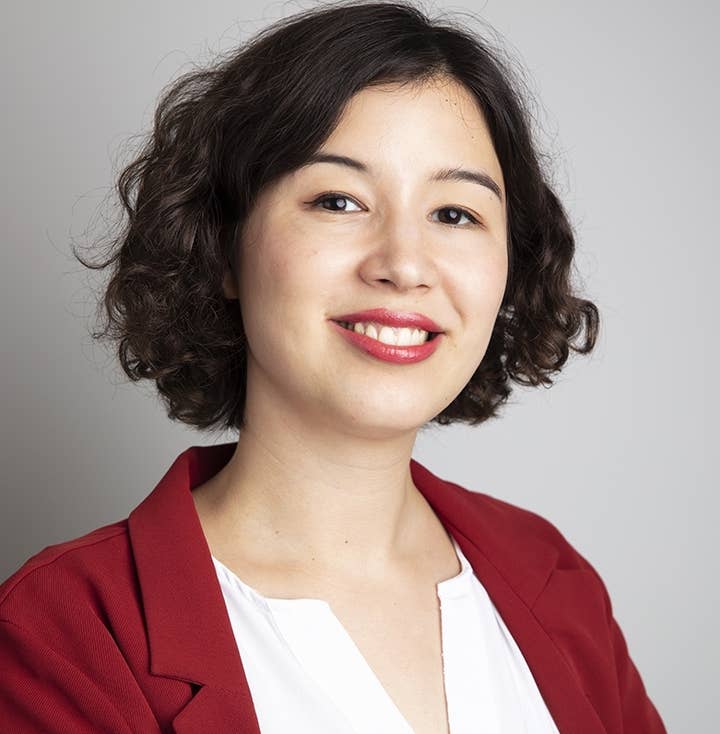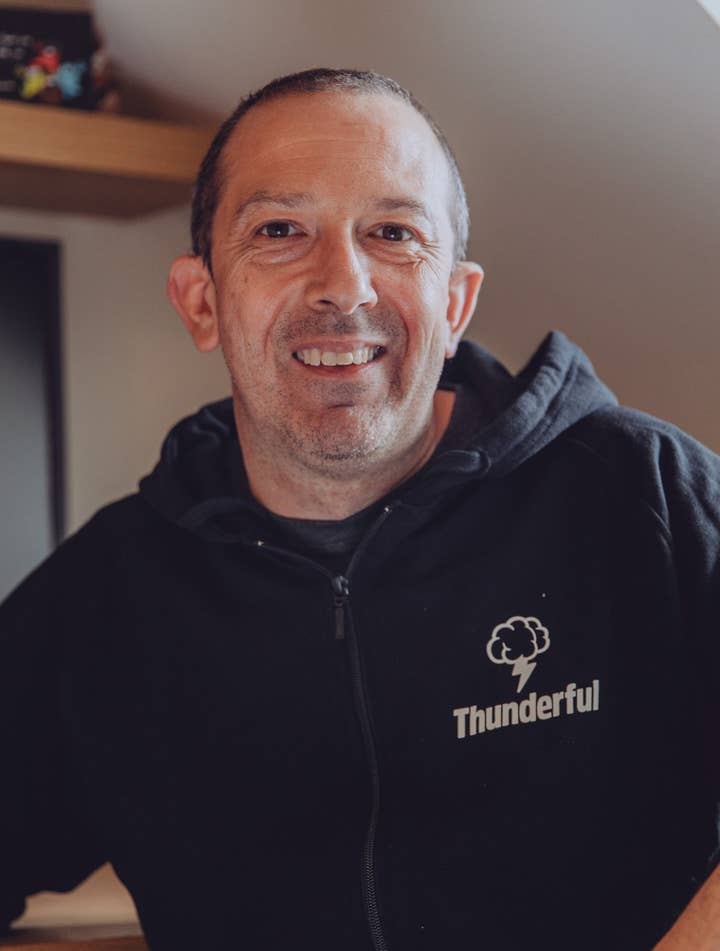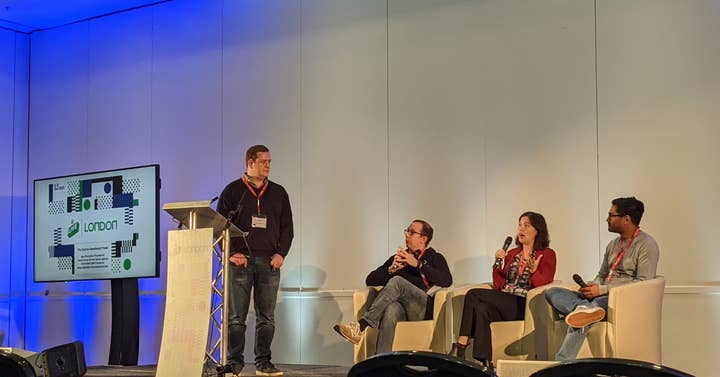Post-pandemic games investment must go beyond "fishing in the same pond"
Cassia Curran, Parin Shah and Agostino Simonetta reflect on the COVID-19 pandemic's impact on the investment landscape
The games investment landscape has been profoundly affected by the pandemic, with the industry forced to learn new ways to conduct business.
This was discussed in depth during a GI Live: London panel last week, featuring Curran Games Agency's founder Cassia Curran, Lego Ventures' investor Parin Shah and Thunderful's chief strategy and investment officer Agostino Simonetta.
"I think one of the major trends over the pandemic would be the internationalisation of funds," Curran said. "The fact that so much work is taking place remotely means that everyone's on the same level playing field. From an investor's perspective, [you] can generally target any country, so studios based in places like Guatemala or Indonesia are actually getting publishing or investment deals from overseas' investors."
While investment schemes such as the SEIS and EIS in the UK, and similar initiatives in countries such as Germany and Canada, still make them very attractive territories for investors, it's now easier than ever to discover and invest in new talent globally.
"I think one of the major trends over the pandemic would be the internationalisation of funds"
Cassia Curran
Shah added that the entire venture market, from venture capital to late stages, is also a very attractive market right now.
"I think that's great if you're a company that's looking to raise capital with a very strong team or a company which is demonstrating validation through that journey," he added. "It's a great time to be in gaming and a great time for creativity in general."
Simonetta noted that three or four years ago, VC firms didn't have much interest in the games industry beyond the mobile business.
"The spectrum of investment opportunities today is unrecognisable from a few years ago, [with] private equity coming in and VC," he said. "You know, we used to talk about family funding your project, the bank funding your project, finding a publisher, platforms giving your money... So what's really changed globally is just a spectrum of people now are interested in putting money into this market. Until three or four years ago, it would have been unthinkable beyond the mobile space to actually have a VC coming in and talking to companies. Now it's very different.
"The UK is, historically, one of the premium countries in Europe with a traditional development of big studios, so [it's] pretty healthy. The great thing is, that's not changing, the UK has a lot of talent and there's a lot of players here, so that's always positive about the people based here to have conversations, especially now that we come back to real life."
'Real life' doesn't mean life like it used to be before COVID-19 though, with an already growing interest in games accelerated by the pandemic. Games proved to be a connecting, positive force during these dark times, with Curran noting that is part of a larger trend.
"Even when the general world economy is going down, typically games still tend to do well," she said. "So one of the reasons for this flood of investment into video games is due to that. From that perspective, that's been the major impact on the investment landscape. Everyone's in the same boat where they're having to remotely make these connections. But it's still totally possible. For the first time this year, [there was] $60 billion worth of M&A and investments, which was twice the amount of M&A and investments done last year."
The pandemic showed games could be a social link, Shah continued, in a time where everyone had to completely rethink their habits.

"It means a lot more people are paying attention to those types of interactive media that can actually enable something that feels closer to real-life connection. In terms of the investment process, initially it felt a bit weird, because in VC circles sometimes, before closing a deal, you want to look the founders in the eye and understand who they are.
"But actually a lot of people realised that Zoom, although it can be a bit solitary, is incredibly efficient. You can get through quite a lot in a relatively short space of time. Every person and their grandmas had to learn how to use some form of interactive medium to communicate, which is an incredible learning journey that otherwise a lot of people may not have even gone through. So that plays into thinking about why games are relevant to the mainstream, that's part of what's captured a lot of people's attention."
However, Simonetta admitted that closing a deal does sometimes take a bit longer these days compared to pre-COVID times, as it can be a bit more challenging to build trust.
"I've been involved in partnerships and deals where there were [partners] who didn't know each other before. It takes a bit longer to get to that point where you can actually trust each other. Building that level of confidence has been harder work."
"We are being forced to rethink the approach, the market, the people we talk to, and it really can have a positive long term effect"Ago Simonetta
Making deals in a digital world does also mean that it's more difficult for spontaneous conversations to emerge, Simonetta continued, saying there is now a lack of "epiphany moments."
"You stumble upon someone, you strike a conversation or you've not seen each other in a while [and say]: 'Oh, you should talk to this person'. I tried really practically to set out a course with a lot of people I wanted to keep in touch with, but it's not the same.
"On the other end, you can be negotiating with someone in Japan in the morning, negotiating with South America in the evening, and doing presentations with Eastern Europe in the afternoon."
Making business remotely also presents a great opportunity for developers from a marginalised background, Curran continued.
"Developers who don't fit the standard image of a video game developer, it's been a bit easier for them over the last year and a half. For example, going to these conferences wasn't really possible for developers from, say, Guatemala. It means they've had the same playing field as many others."

Working digitally opened up a lot of opportunities, with Simonetta saying that Thunderful signed a game from a developer in Brazil that he probably would never have met in other circumstances.
Prior to the pandemic, there was this belief that you needed to travel to shows such as GDC or Gamescom to make your case and secure investment. But that's not true anymore.
With the world slowly starting to open up, there is a chance that the balance shifts back, with travelling picking up again and a lot of people keen to forget all about Zoom. But Curran said it's too early to say whether the balance is actually going to shift.
"In a way, the cool thing is that everyone has had to do things in a certain way, like online completely for the last year and a half, and so therefore it means that the usefulness, the efficiency, we can take it over into this new post-pandemic world. That level playing field, like the fact that Thunderful is doing deals in Brazil, that opens up the doors for more Brazilian studios going forward and other regions.
"But it very much [depends on] individuals. Some people, like myself, really miss conferences and really miss being in a room full of people, having that person-to-person interaction. But for other people, the last year and a half has been fantastic."
Simonetta added: "We have seen that the world doesn't end because we can't travel and meet people.
"I used to be on a plane every other week, and I will never go back to that because I learned what is beneficial. Still there's going to be things that will be in-person, [but] you can see the success we have been having, connecting with people who can't travel and can't be at an event. The natural reaction for a lot of us in the past [was]: we want to meet, where are you going to be? I remember a developer being like, 'We are going to come to Germany to meet you.'

"Now today that's not going to happen, we are all used to doing business on a video call and the benefit will change the way we look at how we do business going forward. Cost as well. There are a lot of companies looking at their travel and expense costs. It's a lot. We have been closing deals, we've been building partnerships which are already successful. Do we really need to go back to the old days? Does it really make sense?"
Curran pointed out that it costs time as well, traveling around the world to meet studios, with Shah adding that it's now about making sure everyone who has an interesting concept has a chance of getting the attention they deserve on that project.
"More of the attention comes in through non-traditional channels," he said. "That's actually really good, because it opens your eyes to the different types of play patterns and game concepts that still have broad appeal, and that could arguably succeed."
In an industry where nepotism has historically boosted many studios, opportunities opening up also means fewer chances to see concepts coming from the same circle over and over.
"Now opportunities are being judged upon the metrics and the actual game itself rather than necessarily the interpersonal relationship of the team," Curran said. "You have far less of the making deals between friends dynamic, which I think is overall positive."
Simonetta concluded: "We talk a lot about diversity, inclusion, [healthy] work environments, but the same concept should be applied to deals. People who have been in this circle for a while, we all know each other, we all spend time together, we have a similar circle of friends. [But] there are so many ideas that we're missing out on because we are fishing in the same pond all the time, in that 'circle of trust'.
"But ultimately that's limited by the ability to meet in person, so I think we are now able and a driving force to open up and look outside. We are being forced to rethink the approach, the market, the people we talk to, and it really can have a positive long term effect."










